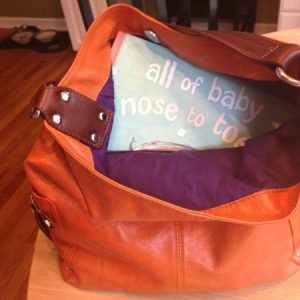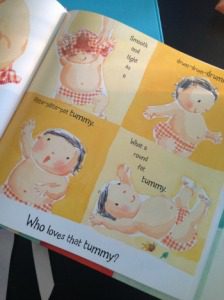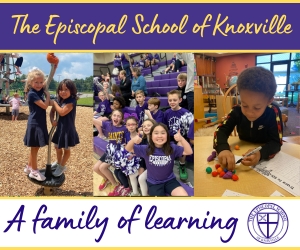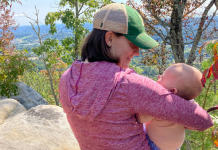Since the last post in this series of reading with your child, I hope you have found small ways to make reading a priority and a pleasant experience for your little ones. With the growing demands for children entering kindergarten, perhaps you have pondered the questions of “how best to prepare your child to read.” Listed below you will see a break down of six essential skills your child needs to learn to read and how you can incorporate the development of these skills into your daily routine.
Print Motivation
Children who enjoy books and reading will be curious about how to read and ultimately will read more. Print motivation is a child’s interest and enjoyment of books. Studies indicate when the interaction around a book is negative, the child’s enjoyment of books and reading begins to decrease. Have you ever used the commands “sit still” or “listen” when reading to your child? I have! Using harsh language with a child can lead to an unpleasant reading experience. To help ensure a pleasurable experience make sure you and your child are in good moods before picking up a book and stop reading when your child becomes tired or loses interest.

Phonological Awareness
Babies and toddlers are much better at hearing different sounds or phonemes than adults. This is why children are wired for learning multiple languages in the early years. Phonological awareness is the ability to hear and play with the smaller sounds in words. Being able to hear the beginning and ending sounds that make up words will help children sound out words when they begin to read. What can parents do to help babies and toddlers hear and play with smaller sounds?
The best and most enjoyable ways to help babies and toddlers with this skill is to say nursery rhymes and sing songs such as Itsy Bitsy Spider. Remember, your children will love you whether you can sing or not!
Vocabulary
Children need to know the meaning of words to understand what they are hearing or reading. If you have heard a word before, chances are you will know if you are reading it correctly. Simply put, the more words children hear, the more ready they will be to make connections when they read. Talk with your children early on and often. When you are grocery shopping, take advantage of the things around you and talk with them about red apples, green apples and how they look, feel, and taste different. Do not avoid unfamiliar words with your child by substituting them with words they already know. Instead, explain unfamiliar words to your child and celebrate the victory with them of learning a new word.

Narrative Skills
The ability to describe events and tell stories is known as narrative skills. Good narrative skills lead to good reading comprehension. To help your child develop narrative skills make sure they have plenty of opportunities to talk with you, not just listen to you talk. Communication is a two-way interaction so encourage your children to respond to questions and ask for details avoiding questions answered with a simple “yes” or “no.” As you go through your day, talk about the things you are doing to them naming objects and labeling feelings.
Print Awareness
Noticing print and the knowledge of how to handle a book in regards to following words on a page is print awareness. A critical skill children can learn very early on is to begin a page at the top and follow from left to right. Here are some ways to help your child notice print and understand how books work:
- Point to signs and read them aloud to your child.
- Let your child turn the pages as you read a book.
- Use your index finger or your child’s to follow words as you read.
Letter Knowledge
To read written words, children must understand that they are made up of individual letters and that each letter has its own name and sound. Learning to tell one letter from another involves being able to see the differences in letter shapes. Helping babies and toddlers learn about different shapes and understand how things are alike and different will help prepare them to learn the alphabet. Pointing out contrasting shapes to your child, reading alphabet books and singing the alphabet song will all help introduce your child to letters.
The moral of this three-part blog series is – read to your child. Provide your child with access to books and one of the easiest ways to do that is through Imagination Library. Even if you have multiple children, it is important to enroll each one as they will accumulate their own personal library of 60 books by the time they enter kindergarten. Visit visit http://tinyurl.com/knoxvilleIL to enroll your child today or to make a donation – $15 will sponsor books for a child in Knox County for an entire year, because the State of Tennessee’s Governor’s Books From Birth Foundation will match your donation dollar for dollar.
Special thanks to Knox County Public Library and Parents as Teachers for their contributions to this post.
 About Christie
About Christie
Christie Knapper and her husband Wade met while in school at Maryville College and after getting married in 2006, chose to call Knoxville home. They have two children, Joel (5) and Camryn (3). Christie has served on the board for Imagination Library since 2010 and recently helped form the Circle of Friends Leadership Council at the Knoxville Zoo. Earning the title of Woman of the Year in 2013 for the Leukemia & Lymphoma Society, Christie works hard to support many local charitable organizations including The University of Tennessee Medical Center where her youngest child spent 18 days in the NICU upon premature birth. Perhaps one of her biggest most recent accomplishment is the launch of her own marketing company, Bridge Marketing.



















